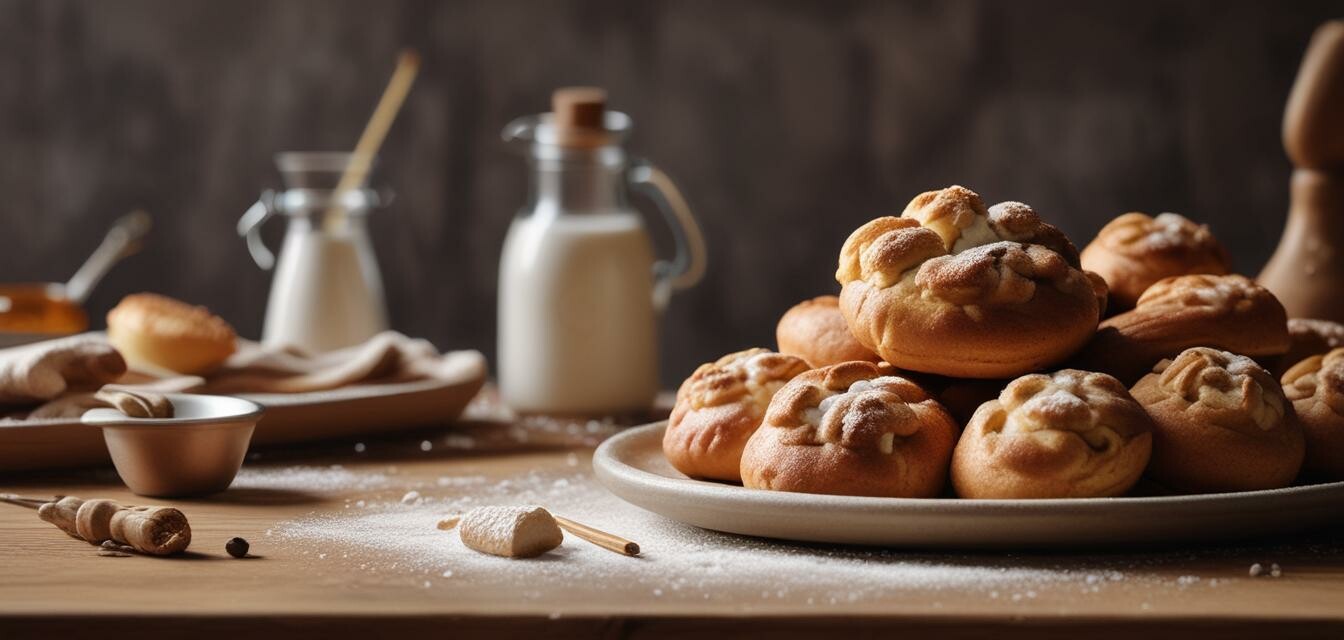
Tips for Perfecting Your Baking Skills
Key Takeaways
- Use quality ingredients for better results.
- Accurate measurements are crucial in baking.
- Understand your oven settings for optimal baking.
- Don’t rush the process; patience leads to perfection.
- Experiment with techniques to develop your style.
Baking is both a science and an art. To elevate your pastry and dessert creations to a professional level, understanding fundamental techniques and tips is essential. Whether you’re a novice in the kitchen or a seasoned baker, the following tips will help refine your skills and boost your confidence. Dive into our expert advice and discover how your baking can improve dramatically!
Essential tips for successful baking
1. Quality matters
Start with high-quality ingredients. Fresh ingredients will always yield better results than old, stale ones. Look for:
- Fresh flour
- Premium butter
- High-quality vanilla extract
- Farm-fresh eggs
2. Precision in measurements
In baking, accuracy cannot be emphasized enough. Follow these steps to ensure precise measurements:
- Use a kitchen scale for dry ingredients.
- For liquids, use measuring cups designed for liquids.
- Level off dry ingredients with a straight edge.
3. Understand your oven
Every oven is different. To achieve the best results, familiarize yourself with your oven's idiosyncrasies:
- Check if your oven is calibrated correctly.
- Use an oven thermometer to monitor the temperature.
- Understand hot spots for even baking.
4. Practice patience
Rushing through the process often leads to mediocre results. Here’s how to bake patiently:
- Allow dough to rest as required.
- Don’t skip the cooling period for baked goods.
- Take your time decorating or assembling pastries.
Key baking techniques to master
Mixing methods
Understanding mixing methods is crucial. Here are common techniques:
| Method | Description |
|---|---|
| Creaming | Mixing sugar and butter to incorporate air for fluffy batter. |
| Folding | Gently combining delicate ingredients like whipped cream with the batter. |
| Kneading | Developing gluten in dough for breads by folding and pressing. |
Mastering temperatures
Temperature variations affect how dough behaves. Pay attention to:
- Room temperature for butter and eggs in recipes.
- Preheating the oven adequately before baking.
- Allowing your baked goods to cool gradually for texture.
Common baking mistakes to avoid
Recognizing and avoiding common pitfalls can ensure better results. Here are mistakes to watch out for:
Pros
- Enhancing your skills leads to better taste and texture.
- Understanding the science of baking can prevent failures.
- Continuous practice increases creativity and confidence.
Cons
- Time-consuming, especially with complicated recipes.
- Frustration can arise from failed attempts.
- Requires a well-stocked kitchen with tools and ingredients.
Avoiding pitfalls
Here are frequent mistakes to avoid in your baking journey:
- Not measuring ingredients correctly.
- Skipping the preheating step.
- Overmixing batters after adding flour.
- Ignoring the recipe instructions.
- Not tasting and adjusting as you go.
Final thoughts
By implementing these tips, mastering techniques, and avoiding common blunders, you'll find that baking can transform from a daunting task to an enjoyable and rewarding experience. Embrace the journey of baking, and remember to have fun experimenting with different flavors and styles!
Beginner tips
- Start with simple recipes to build your confidence.
- Watch tutorial videos for visual guidance.
- Invest in basic baking tools for easier handling.
For more tips and techniques, explore our Cooking Tips & Techniques category. You can also check our Baking Essentials for the best tools to enhance your baking journey!